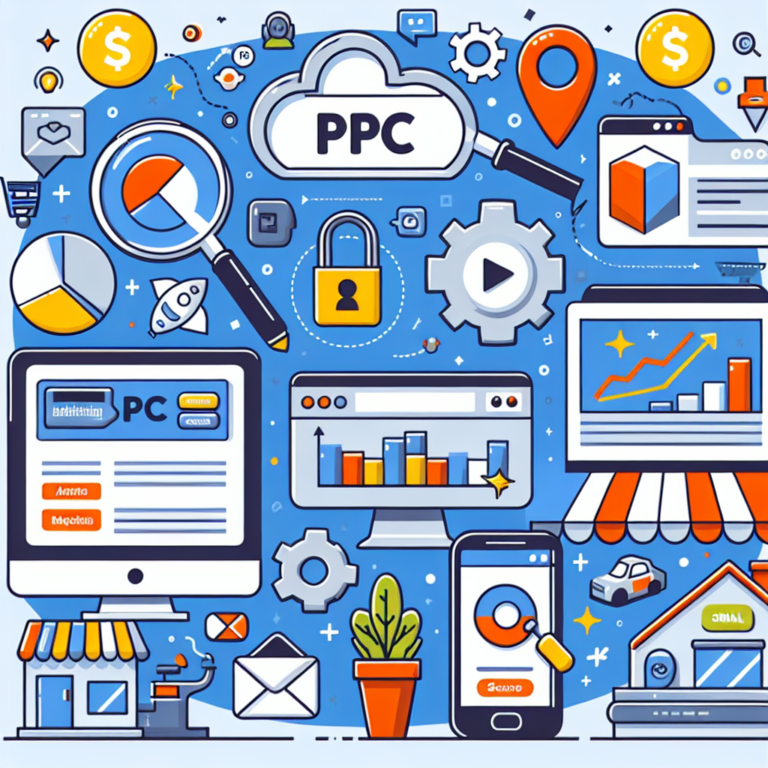# The Top 5 PPC Management Platforms for Small Businesses
## Introduction
In today’s digital age, online advertising has become crucial for businesses looking to reach their target audience and drive sales. Pay-Per-Click (PPC) advertising is one of the most effective ways to achieve these goals, allowing businesses to place ads on search engines and social media platforms and only pay when someone clicks on their ad. However, managing PPC campaigns can be complex and time-consuming, which is why many small businesses turn to PPC management platforms to help streamline the process. In this blog, we will explore the top 5 PPC management platforms for small businesses.
## 1. Google Ads
Google Ads, formerly known as Google AdWords, is the most popular PPC platform on the market. It allows businesses to create ads that appear on Google’s search engine results pages and across its network of partner sites. Google Ads offers a variety of targeting options, ad formats, and bidding strategies to help businesses reach their target audience and achieve their advertising goals. Additionally, Google Ads provides detailed analytics and reporting tools to track the performance of campaigns and make data-driven decisions.
## 2. Microsoft Advertising
Microsoft Advertising, formerly known as Bing Ads, is another popular PPC platform that allows businesses to place ads on the Bing search engine and its partner sites. While Microsoft Advertising may not have the same reach as Google Ads, it can still be a valuable tool for businesses looking to target a specific audience or reach users who may not use Google as their primary search engine. Microsoft Advertising offers similar targeting options and ad formats as Google Ads, making it a great alternative for small businesses looking to diversify their PPC advertising efforts.
## 3. Facebook Ads
Facebook Ads is a powerful PPC platform that allows businesses to create ads that appear on Facebook and Instagram. With over 2.8 billion monthly active users on Facebook alone, businesses can reach a massive audience and target users based on their demographics, interests, and behaviors. Facebook Ads offers a variety of ad formats, including image ads, video ads, and carousel ads, to help businesses capture the attention of their target audience. Additionally, Facebook Ads provides detailed targeting options and analytics to help businesses optimize their campaigns for maximum results.
## 4. LinkedIn Ads
LinkedIn Ads is a PPC platform specifically designed for businesses looking to reach a professional audience. With over 700 million users, LinkedIn is the largest professional networking platform in the world, making it an ideal platform for B2B businesses looking to connect with decision-makers and influencers. LinkedIn Ads offers targeting options based on job title, industry, company size, and more, allowing businesses to reach a highly targeted audience with their ads. Additionally, LinkedIn Ads provides detailed analytics and reporting tools to help businesses track the performance of their campaigns and make data-driven decisions.
## 5. Twitter Ads
Twitter Ads is a PPC platform that allows businesses to create ads that appear on Twitter’s timeline, search results, and user profiles. With over 330 million monthly active users, Twitter offers businesses a unique opportunity to reach a global audience and engage in real-time conversations with their target audience. Twitter Ads offers targeting options based on keywords, interests, and demographics, as well as ad formats like promoted tweets, promoted accounts, and promoted trends. Additionally, Twitter Ads provides detailed analytics and reporting tools to help businesses track the performance of their campaigns and optimize their ad spend for maximum results.
## Conclusion
PPC advertising can be a powerful tool for small businesses looking to reach their target audience and drive sales. By using one of the top 5 PPC management platforms mentioned in this blog, businesses can streamline their advertising efforts and maximize their ROI. Whether you choose Google Ads, Microsoft Advertising, Facebook Ads, LinkedIn Ads, or Twitter Ads, each platform offers unique targeting options, ad formats, and analytics to help businesses achieve their advertising goals.
## Frequently Asked Questions
### 1. How much does it cost to advertise on these PPC platforms?
The cost of advertising on PPC platforms varies depending on factors like competition, targeting options, and ad formats. Businesses can set their own budget and bid amount on these platforms, allowing them to control how much they spend on advertising.
### 2. How do I know if my PPC campaigns are successful?
PPC platforms provide detailed analytics and reporting tools to help businesses track the performance of their campaigns. Businesses can monitor metrics like click-through rate, conversion rate, and return on ad spend to determine the success of their PPC campaigns.
### 3. Can I target specific audiences with PPC advertising?
Yes, all of the PPC platforms mentioned in this blog offer targeting options that allow businesses to reach specific audiences based on factors like demographics, interests, and behaviors. Businesses can create custom audiences and target them with relevant ads to increase their chances of success.
